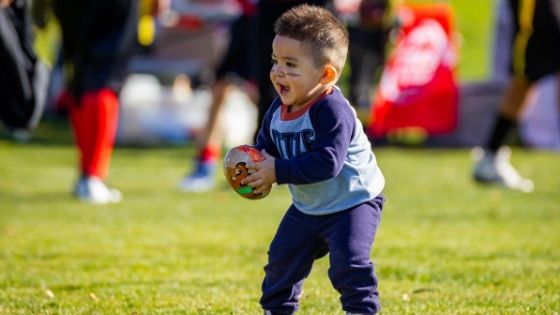Parents often enroll their kids in sports to keep them active. They want the children to get exercise while socializing with kids their own age. What many parents may not realize is their kids learn valuable life skills while engaging in this activity. What skills will a child pick up during their time on the court, in the pool, or wherever they choose to play?


Discipline
Children don’t need to practice a sport until they are perfect. In fact, major athletes at the top of their game continue to practice their skills. Kids must learn that honing a skill makes them more effective in their sport of choice while also allowing them to get better. Improvement serves as a reward of its own. Furthermore, children discover the concept of muscle mastery. With practice, they respond instinctively in a situation. This often becomes of importance in a career where seconds matter, such as in firefighting or medicine. Although not every child who takes part in kids sports will go on to a career in one of these fields, having discipline will benefit them in every area of life.
Accountability
When a child plays a team sport, they become accountable to others. The coaches and other players hold them to a certain standard. Each child must give their all when playing so they don’t let the others down. As the child ages, they will find themselves in situations where they must work in a group setting. Other people in this group will value the person who played childhood sports because the group knows they can rely on this individual.
Handling Loss with Grace
No athlete wins every game or match. When children play sports, they learn the value of failing and how to lose with dignity. Obviously, parents love seeing their kids learn how to remain humble when they have success on the field or court. Nevertheless, children need to see both sides of the coin and know that they will not come out on top every time. It’s how they handle a defeat that will determine their success or failure not only as a player but also as a person in society.
Time Management
Children who play sports must learn to manage their time wisely. The child, with the help of their parents, needs to figure out how to get their schoolwork done, attend practices and games, and have time for family and friends. For example, children in elementary school should focus on learning how to estimate the time needed for practice, including getting to and from the playing venue. As they get older, the focus can turn to planning for long-term assignments while still accommodating activities such as practices and games.
Respect
Children learn the importance of respect when playing a sport. They discover respect isn’t given but earned. Once they understand this, they see how it benefits them in other parts of life. For instance, a boss is more forgiving when an employee is a few minutes late if this rarely happens. Being on time shows respect on the part of the employee, and the employer will show the same respect when they excuse occasional tardiness.
Children learn many things when playing sports. However, the main thing a child should take away from their sport of choice is a love of physical activity. If they develop this love for being active and engaging in a sport, they are more likely to continue with it as they get older. The health benefits of doing so cannot be discounted. Keep this in mind when a child plays sports, encourage them to have fun above all else when doing so, and the life skills will naturally come.
















